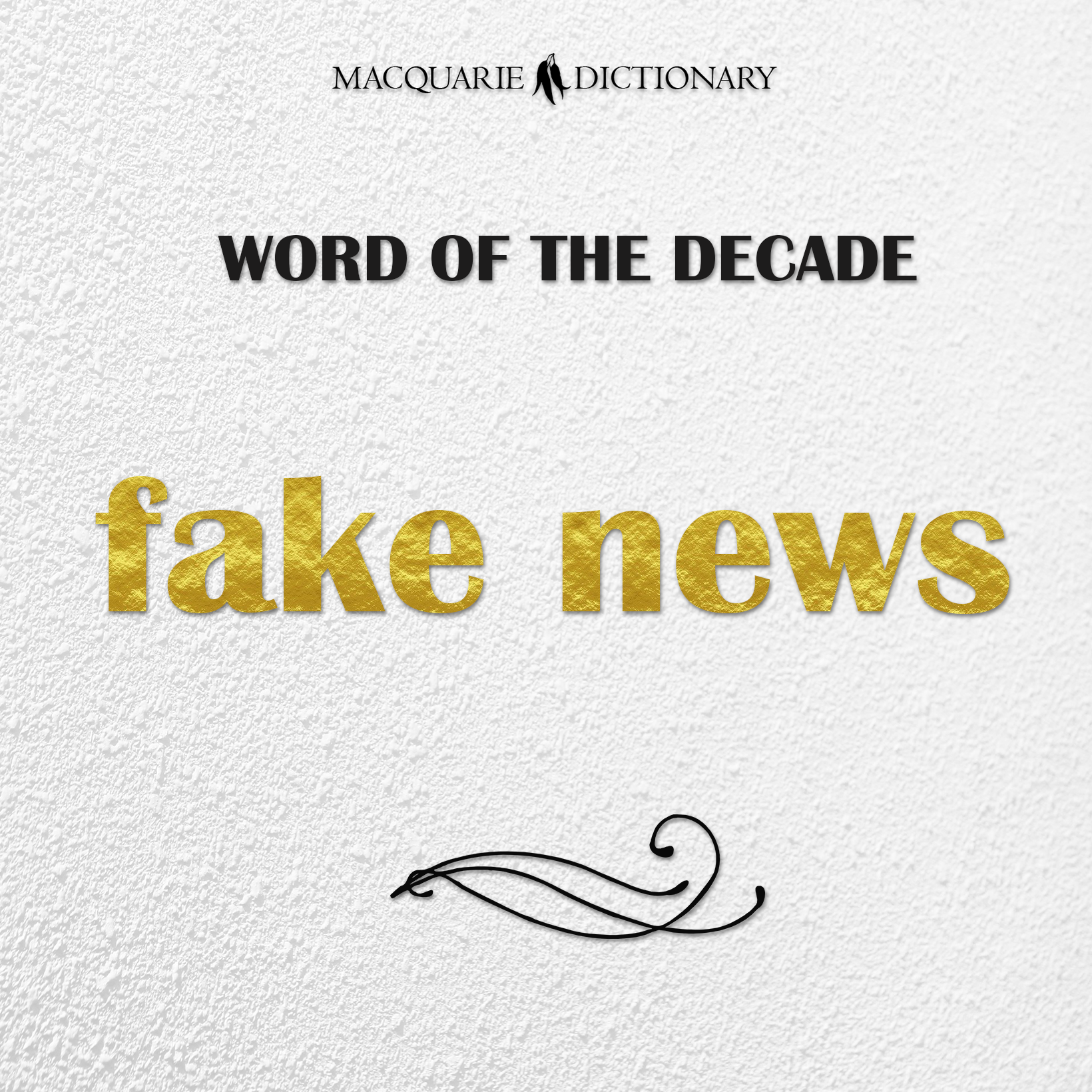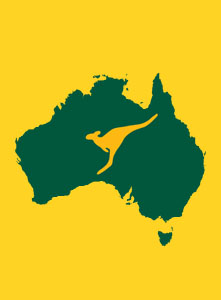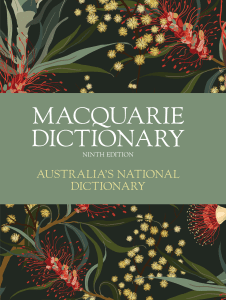After a truly bumper year for new words, and with the ticking over of a new decade, the Macquarie team decided that the time was perfect for thinking about a Word of the Decade. Taking the winners of Word of the Year for the past ten years, we asked all of Australia to vote for the words which resonated most as the first official Macquarie Dictionary Word of the Decade.
After a week of voting from the shortlist, we would like to announce fake news as the Macquarie Dictionary Word of the Decade!
After a record-breaking number of votes, fake news beat out mansplain by the thinnest of margins, with First World problem finishing a close third.
The Macquarie Dictionary Word of the Decade: fake news
The Committee’s Choice for 2016, fake news is Macquarie’s Word of the Decade. While we think of fake news as a coinage of Donald Trump’s 2016 presidential campaign, it was around before then. However, it became emblematic of that campaign and the four years that followed it.
It became part of our lives so quickly and was so overwhelming that school courses had to be developed to teach children strategies for detecting fake news.
Since 2016, fake news has gained a second definition in the Macquarie, as a term used to refer to information that is viewed as being opposed or detrimental to someone’s own position – whether it is factual or not. Words are powerful and the ease with which we see this term being thrown around to instantly rob something of its credibility can be very damaging. It looks like it’s a term that’s here to stay.
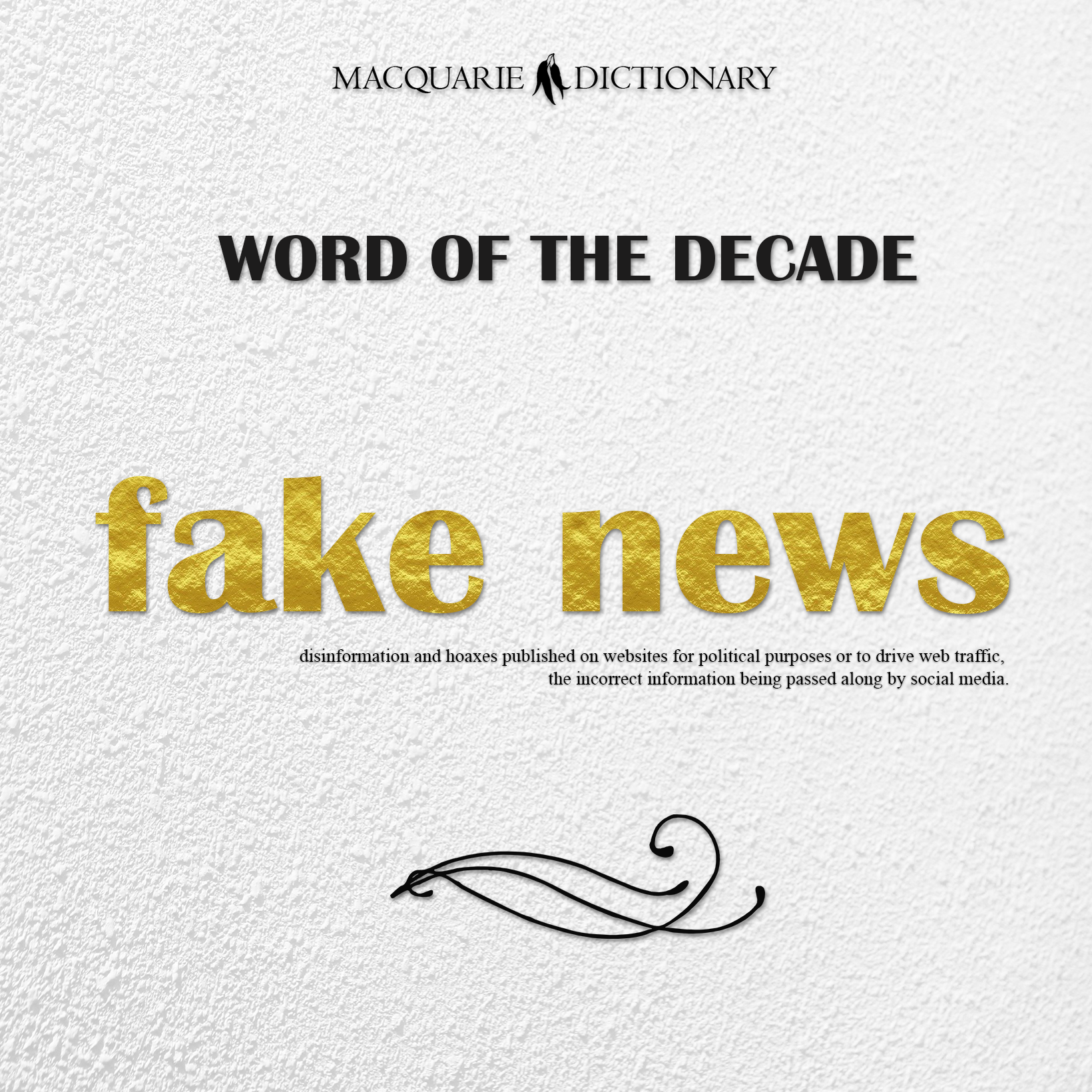
Runner-up: mansplain
Right up until the close of voting, mansplain was jostling with fake news for the top gong.
It was the Committee’s Choice in 2014, and was very contentious at the time.
Regarded as sexist by many men, it was applauded by women as a simple description of a phenomenon long suffered by females, and it’s obviously still resonating. The word is a clever coinage, one of a number of humorous constructions such as mancation, manterrupt and, of course, manspread, another neat word to describe something far from neat.
Of course there are many who do not find these remotely clever or humorous, and so the controversy lives on.
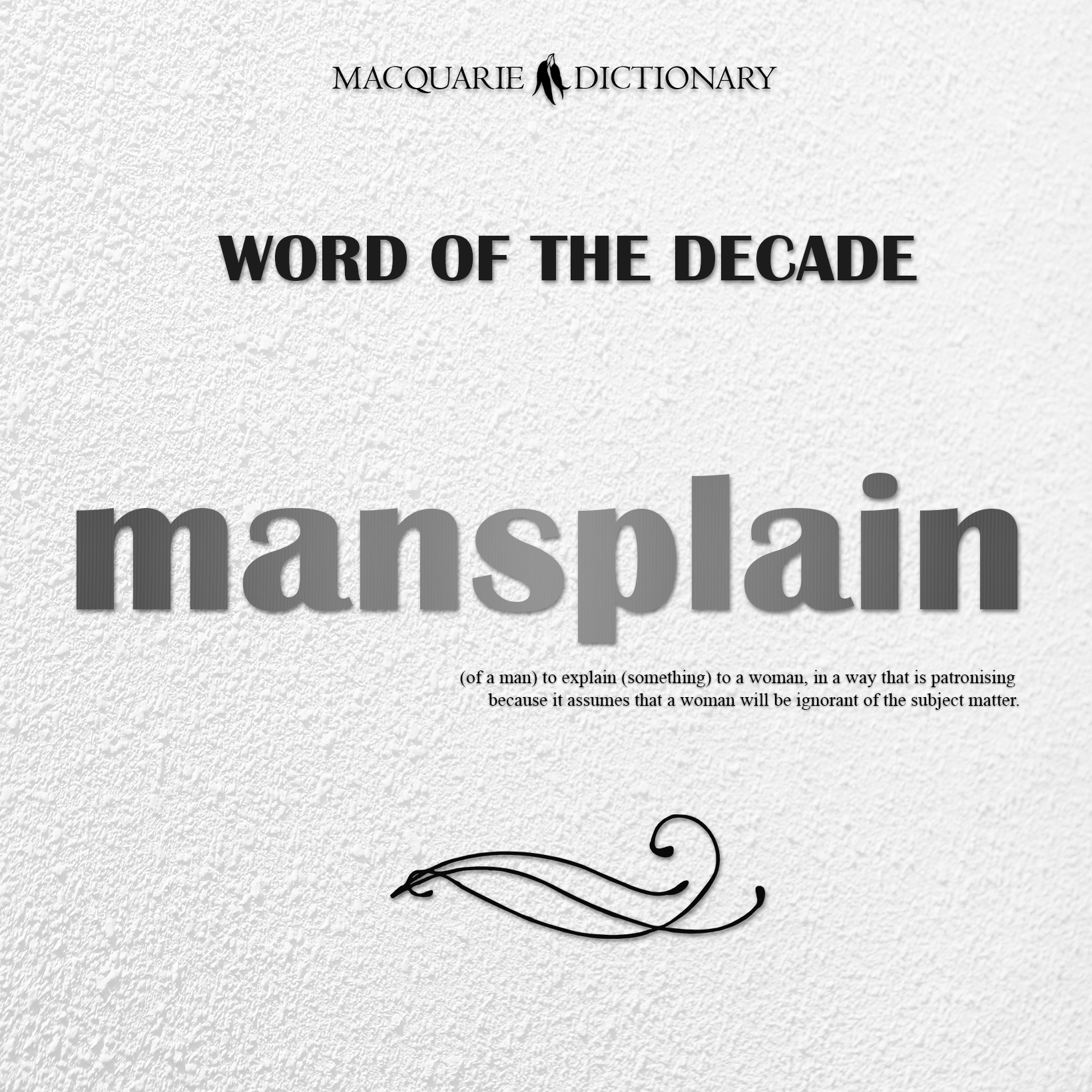
Runner-up: First World problem
First World problem was the People’s Choice vote in the 2012 Word of the Year.
This has proved to be a much sounder choice than the Committee’s winner that year – phantom vibration syndrome (what?). Like mansplain, First World problem succinctly sums up a sprawling concept, and makes the surrounding conversation easier and clearer. It’s often used humorously, but, even so, carries an acknowledgement of those far less fortunate. The fact that it scored one of the highest numbers of votes for Word of the Decade indicates that the term and the concept are still relevant.
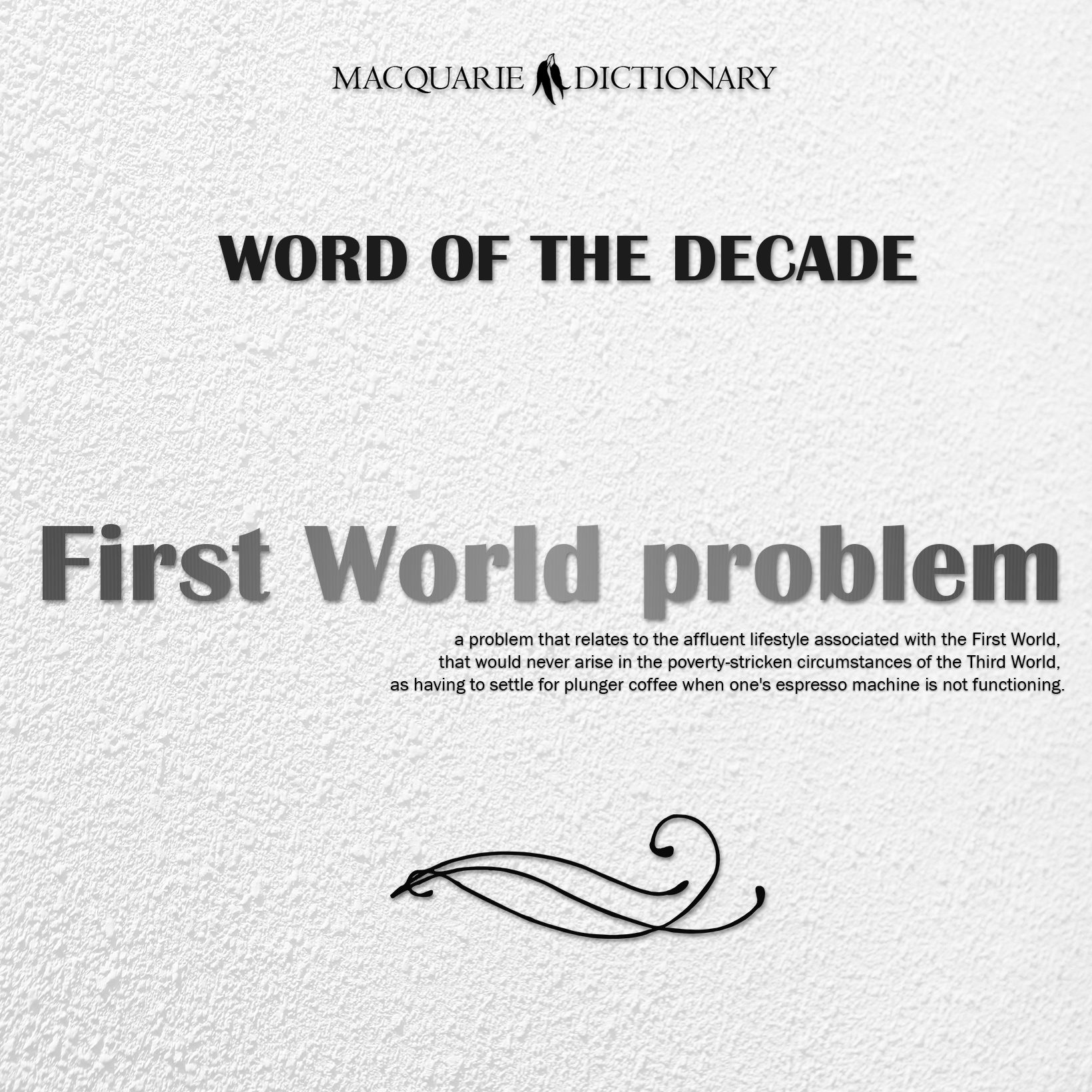
THE BOTTOM LINE
They were the top three choices for Word of the Decade. So which were at the other end – the least popular words?
Voted in as the People’s Choice in 2014, share plate came a very definite last in the ballot for Word of the Decade. Perhaps the thought of such a thing in the time of COVID sounded such loud alarms and warnings that voters were scared off.
While we still experience the phenomenon of feeling our phones vibrating in our pockets or bags when they aren’t, this name for it really never took off. The Committee chose it as the winner in 2012, but it does seem a little cumbersome. In retrospect, the runner-up crowdfunding would have been a better bet.
People’s Choice 2017. This one could have been a star – a portmanteau which very neatly describes that group of friends who are so close they could be family. But, while it showed promise early on, it basically failed to launch.


